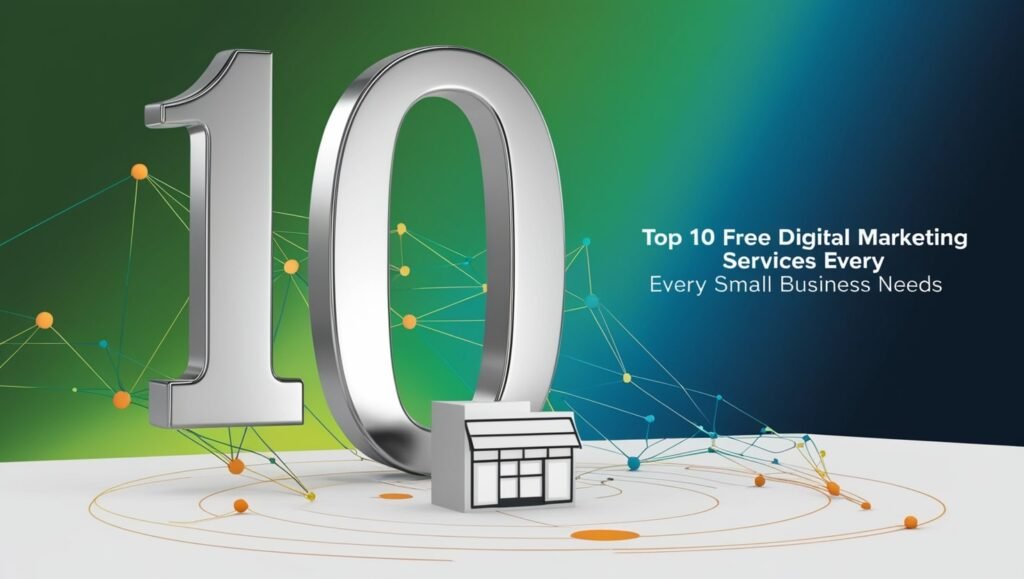Do you want to start your own business in Iowa? You just wonder where you should plant your entrepreneurial roots. Then look no further than the heartland of America: Iowa! We highlight why the Hawkeye State is the perfect launchpad for your business aspirations.
The first two places that come to mind when discussing startup hubs are naturally Silicon Valley and New York City. However, little do you know that Iowa is slowly turning into the next best gem for entrepreneurs. A business-friendly environment combined with thriving industries and robust support systems make it place its leadership at the forefront in challenging the status quo within startup scenes. Is it the right place for you to begin your business journey, though?
In this blog post, we’re going to dive deep into the entrepreneurial ecosystem of Iowa, from its business-friendly policies to the types of industries thriving there and lots of resources supporting each startup. It encompasses access to a skilled workforce, funding opportunities, and the overall quality of life for a business owner. Of course, that is not all; we will provide you with an overview of potential challenges you may face in Iowa. Buckle up and join me as I delve into the exciting ride of knowing if indeed Iowa is the promised land of entrepreneurship.

The Business-Friendly Environment in Iowa
Iowa has long been recognized as a state open to and inclusive of businesses of all sizes. This friendly attitude toward business has attracted entrepreneurs as well as established companies to locate here. Let’s now discuss the top factors that have made Iowa an excellent place to start or grow a business.
Low cost of living and doing business
One of the most alluring reasons for choosing Iowa is the state’s costs of living and doing business are exceptionally low. We pride ourselves on providing a competitive edge that lets companies thrive without breaking the bank.
Housing Affordability
Some of the most affordable housing markets nationwide are in Iowa. This, of course, includes both residential and commercial locations. Keeping this in mind, here’s a side-by-side comparison of Iowa housing compared to the national average.
| Housing Type | Iowa Average | National Average | Difference |
| Median Home Price | $158,900 | $291,700 | -45.5% |
| Average Rent (2-bedroom) | $831 | $1,192 | -30.3% |
| Commercial Space (per sq. ft.) | $12.50 | $23.75 | -47.4% |
From this, you can easily see whether you are buying an investment, a new home to rent, or both; Iowa will have you spending millions less than the national average. This means you save overhead expenses for your firm and lower living expenses for you and your employees.
Utilities and energy costs
Another feature of Iowa is low utility costs that can keep your operational costs low. Iowa’s strong pursuit of renewable energy, especially wind, has meant stable and cheap electricity prices. Iowa utility costs compared to the rest of the nation are as follows:
- Electricity: 10.46 cents/kWh (Iowa) vs. 13.19 cents/kWh (National)
- Natural Gas: $10.32/thousand cubic feet (Iowa) vs. $12.79/thousand cubic feet (National)
- Water: $3.01/1,000 gallons (Iowa) vs. $3.72/1,000 gallons (National)
This decreased utility usage can result in significant cost savings to businesses, most particularly in those industries that are significant consumers of energy.
Labor Costs
While Iowa’s workforce is highly competent and dedicated, we discuss in greater detail below how labor costs continue to be competitive as compared to many other states. With an average hourly wage of $24.04, Iowa is around 10% lower compared with the national average wage of $26.71. Businesses can afford quality talent without straining the budget.
Supportive state government policies
Consistent in its efforts to support the growth of business and entrepreneurship, Iowa has made real strides in creating a nurturing environment for businesses of all sizes through a range of policies and programs.
Streamlining Regulations
Iowa is well aware that too much red tape may not be the best for the growth of business. That is why we in Iowa have taken steps to streamline regulations and make it easier for businesses to operate. Some of our initiatives include:
- One-stop business portal: IASourceLink is a one-stop site with which business owners can register their business and obtain any license and permit a business may require.
- Review of rules: The State of Iowa periodically reviews and updates its rules to simplify and eliminate antiquated or unnecessary ones that would hinder the growth of businesses.
- Small Business Liaison: There is a dedicated small business liaison in the Iowa Economic Development Authority (IEDA) to assist entrepreneurs in tapping into resources from the state and how to navigate state regulations.
Business Development Programs
Iowa has many programs that focus on encouraging growth in businesses throughout the state at every stage:

- Targeted Small Business (TSB) Program: This program includes financial help and support to businesses owned by women, minorities, persons with disabilities, and service-disabled veterans.
- Iowa Economic Development Authority (IEDA) Programs: IEDA has programs that offer financial assistance, technical help, and networking support for businesses that start in Iowa or want to expand there.
- Entrepreneurial Development Centers: Located in strategic locations across the state, entrepreneurial development centers offer mentoring, training, and access to resources that guide entrepreneurs through the process of turning ideas into successful businesses.
Workforce Development Initiatives
Persuading one’s self that a skilled workforce is fundamental to operating a business, Iowa has initiated several workforce development initiatives:
- Future Ready Iowa: This program links workers to education and training to upskill for high-demand jobs in a talent pipeline for Iowa.
- Iowa Workforce Development: This agency provides funds for job seekers and employers, respectively, offering on-the-job training and labor market information.
- STEM initiatives: The state of Iowa has allocated a lot of its resources to science, technology, engineering, and mathematics education. The primary reason is that this kind of education offers a diversified work supply for upcoming industries in growth.
Tax incentives for new businesses
Iowa’s tax system is aimed at making business expansion and investment easier. Under this, we have various tax incentives that can highly reduce the tax for new and newly expanding businesses.
Corporate Income Tax Credits
To encourage businesses to expand and create jobs, Iowa offers several corporate income tax credits:
- High-Quality Jobs Program: This is a tax credit program that deals with the creation of high-paying jobs and capital investments in Iowa.
- Research Activities Credit: Businesses are eligible for a refundable tax credit if they undertake qualified research activities in Iowa.
- New Jobs Tax Credit: A business qualifies for this credit when it increases its number of employees to an increment of at least 10%.
Property Tax Abatements
Iowa has property tax abatement in most local governments. The agreements attract new business investment by reducing the property tax liability of newly established or expanding businesses by significantly large amounts.
- Industrial Property Tax Exemption: New industrial structures and improvements are exempt from property taxes for a period of up to five years.
- Urban Revitalization Tax Exemption: Industries can be exempt from paying property taxes when they renovate properties in specially designated urban revitalization areas.
Sales Tax Refunds and Exemptions
The following are some of the various sales tax incentives Iowa offers for business growth:
- Manufacturing Machinery and Equipment Exemption: This exclusion would exempt machinery and equipment used directly in a manufacturing process.
- Research and Development Sales Tax Refund: Business entities that invest time and money to study and develop something new can use a refund of sales taxes paid for particular purchases.
- Data Center Sales Tax Exemption: Qualified data centers can exclude sales and use tax on certain purchases.
Comparison of Tax Incentives in Iowa
Let’s compare some of the major tax incentives of Iowa with national averages:
| Tax Incentive | Iowa | National Average |
| Corporate Income Tax Rate | 5.5% – 9.8% | 6.6% |
| R&D Tax Credit | 6.5% (refundable) | 5% (often non-refundable) |
| Property Tax Abatement Duration | Up to 5 years | Varies widely |
| Sales Tax Rate | 6% | 7.12% |
You can see that the tax incentives in Iowa are highly competitive, in most cases even better than the national average. Meaning a huge saving for businesses doing business in our state.
Strong infrastructure and transportation network

There is a need for having a mature infrastructure and transport network in business performance. Iowa has a brilliant and modern system that can work well with the smooth transportation of both goods and people.
Road System
Over 114,000 miles of public road under Iowa’s very vital road system that reads:
- 9 interstate highways cover the state.
- A continuous maintenance program with proper developments that ensure good quality roads
- This extensive network allows for easy movement of products and access to markets within the Midwest and beyond.
Rail System
Iowa’s rail system is part and parcel of the transportation system.
- Over 3,800 miles of tracks
- Connection to major rail terminals in both Chicago and Kansas City
- Transfer facilities, which allow for easily transferring freight between rail and truck
- This vast rail network offers businesses economies of scale for bulk movements over long distances.
Iowa has a robust air transportation system supporting passengers and cargo.
- 8 commercial airports
- Over 100 general aviation airports
- UPS and FedEx running air cargo hubs in Des Moines
Services help businesses reach national and international markets quickly.
River Transportation
Iowa’s location on the Mississippi and Missouri Rivers provides exclusive transportation benefits:
- Over 490 miles of navigable waters
- 60 barge terminals along the Mississippi River
- Low-cost transport of bulk commodities
- This river transportation system offers a cost-effective approach for companies that transport huge volumes of cargo.
High-Speed Infrastructure
“Iowa realizes the integral position digital connectivity plays in today’s business environment and invests heavily in broadband infrastructure, such as;
- Iowa Cell Siting Act: The act is an effort to standardize small-cell technology deployment, thus promoting the widespread rollout of 5G networks.
- The Empower Rural Iowa Initiative is aimed at boosting broadband access in rural Iowa.
- Connect Every Acre: This initiative enhances broadband internet access in agricultural districts.
Investments to date have yielded a return with broadband internet accessible to 90.7% of Iowans, and more projects are underway.
Wind Energy Infrastructure
Iowa is the country’s leader in wind production; the state boasts one-third of the country’s wind farm capacity. Iowa’s stance on renewable energy is not only compatible with achieving sustainable goals but also provides reliable and affordable energy to businesses.
- More than 11,000 megawatts of installed wind capacity
- More than 42% of Iowa’s electricity is generated from more than any other state.
- Strong expanded solar energy base, over 100 megawatts of installed capacity
- This infrastructure in renewable energy allows businesses to reduce their carbon footprint while also enjoying stable energy costs.
With all the explanations above about Iowa’s business-friendly environment, including low costs, friendlier policies, tax incentives, and strong infrastructure, it is evident that our state is a good destination for entrepreneurs and businesses. In the next section, we will discuss the thriving industries that drive Iowa’s economic growth as well as the opportunities presented to new businesses.
Thriving Industries in Iowa
Now that we’ve discussed Iowa’s business-friendly climate, let’s dive into how these thriving industries make our state prime for entrepreneurs. Iowa’s diversified economy provides a lot of opportunities within lots of industries, so the state is a great location for any business person, no matter the size or type. This section will give us a glimpse at some of the most promising industries driving the Iowa economy and the wide range of opportunities new businesses can capitalize on.
Agriculture and Food Processing
Iowa is the Heartland of America, a state that’s closely associated with farming. With rich soil, an excellent climate, and generations of farm ingenuity and know-how, Iowa is the leader in agricultural production. However, it’s no longer simply farming crops and raising livestock; Iowa has gone way beyond to become a food processing and value-added agriculture powerhouse.
Iowa’s Agricultural Dominance
Iowa is the number one state in the United States in agricultural production. The state leads the rest of the nation in many significant ways:
- Corn production
- Soybean production
- Pork production
- Egg production
This abundance in agriculture forms a solid foundation for entrepreneurs who want to pursue a career in the food and agriculture business. Of course, if you have an interest in farming, tech, food processing, or something more, Iowa has much to offer.
Value-Added Agriculture and Food Processing
The food processing industry in Iowa is booming these days. We can witness the expansion of companies that accept raw agricultural products and transform those products into higher-value food items. That would include:
- Meat processing plants
- Manufacturers of dairy products
- Operations milling grain and oil seeds
- Specialty food manufacturers
Apart from providing employment, the said industries do add value to our agricultural products and thus are apt boosters of the overall economy of our state.
Opportunities for Entrepreneurs
For a small business, Iowa has many advantages that might make it suitable to engage in agriculture and food processing activities, for instance:
- Ready raw materials: It is situated in the heart of agricultural production where there is access to high-quality ingredients within a short time.
- Well-developed supply chains: This is an area of well-developed agricultural infrastructure that ensures smooth operations from the farm gate to the table.
- Research and innovation support: Institutions like Iowa State University offer the most recent research and support for agribusiness innovations.
- Niche market potential: specialty and organic produce is in high demand and, therefore, presents an opportunity for small-scale producers.
| Opportunity | Description | Potential Impact |
| Organic Farming | Increased demand for organic produce | High margins, sustainability |
| Agtech Startups | Develop technology solutions in agriculture. | Increased efficiency, sustainability |
| Specialty Food Production | Create new, locally sourced food products. | Brand differentiation, local economic stimulus |
| Vertical Farming | Urban agriculture | Year-round crops, economies of scale, and transportation |
Renewable Energy Sector
We have become a national leader in renewable energy, particularly in wind and biofuels. It not only aids in the energy independence of our state but also offers multitudes of business opportunities.
Wind Energy
Now, in terms of wind energy production, Iowa is ranked second in the United States. More than 40 percent of electricity in our state is generated from wind. This is quite impressive considering our aim at clean energy and the benign climate of the state for the generation of wind power.
However, some of the areas of prospects in the wind energy sector include:
- Development and management of the wind farm
- Production of wind turbine parts
- Maintenance and repair services for wind installations
- Wind energy consulting and engineering services
Biofuels
Iowa is the country’s leader in ethanol production as well as a leader in biodiesel production. Plentiful corn and soybean crops assure a constant supply of feedstocks for these renewable fuels.
Iowa Opportunities:
- Ethanol and biodiesel production facilities
- Research and development of advanced biofuels
- Biofuel distribution and logistics
- By-product utilization and value-added processing
Solar Energy
Although not as highly featured as solar, the state of Iowa is increasingly experiencing a rise in the number of sectors working on the production of solar energy. Lower costs of solar technology and favorable state policies make solar installation opportunities more attractive for both residential and commercial undertakings.
Business opportunities in the solar sector:
- Installation services for solar panels
- Development of solar farms
- Manufacturing of solar components
- Energy storage solutions
Impact of Renewable Energy on the Iowa Economy
Renewable energy has played a significant role in transforming the economy of the state of Iowa in many ways:

Job creation is one of the sectors that have resulted from the manufacturing, installation, and maintenance jobs created in the state.
- Rural Economic Development: Many of the renewable energy projects are based in rural areas, thus the attendant economic benefits to rural areas.
- Energy Cost Stability: A parity of electric cost stabilization between businesses and consumers is ensured through renewable energy.
- Environmental Advantages: Clean energy transition reduces our carbon footprint and enhances the quality of the air we breathe.
Opportunities abound for any entrepreneur wanting a piece of the renewable energy industry in Iowa. There are new technologies to be developed, services to be offered to existing installations, and niches to be uncovered in this category itself. The renewable energy scene of Iowa presents fertile ground for innovation and growth for new entrepreneurs or expanded businesses.
Advanced Manufacturing Opportunities
Iowa has a long history in manufacturing and today leads the way in advanced manufacturing. It combined traditional manufacturing processes with cutting-edge technologies to produce high-value products more efficiently.
Strength of Iowa in Manufacturing
In some manufacturing areas, our state stands out:
- Agricultural and Construction Machinery
- Food Processing Equipment
- Aerospace and Defense Components
- Automotive Parts and Accessories
- Medical Devices and Equipment
These are the companies that make up a vast majority of Iowa’s manufacturing base and offer ample options for new firms to be integrated into the supply chain or create new products.
Advanced Manufacturing Technologies
The integration of advanced technologies is changing the way things are manufactured in Iowa. The key areas of emphasis include:
- Automation and robotics: this can ensure higher productivity and accuracy in the manufacturing process.
- 3D Printing/Additive Manufacturing: This facilitates rapid prototyping and scope for customized production.
- Internet of Things (IoT): Improving connectivity and data gathering in manufacturing.
- Artificial Intelligence and Machine Learning: Streamlining production and predictive maintenance.
Entrepreneurial Opportunities in Advanced Manufacturing
There are a plethora of promising opportunities for entrepreneurs who wish to venture into advanced manufacturing in Iowa:
- Technology Integration Services: assist the established manufacturers in adopting and implementing new technologies.
- Specialized Component Manufacturing: Manufacturing high-precision parts for certain industries.
- Smart Factory Solutions: Developing IoT devices or software for manufacturing environments.
- Advanced Material Development: New material with enhanced properties for the production processes.
- Sustainable Manufacturing Process: More sustainable and resource-intensive manufacturing technologies
| Opportunity | Description | Potential Impact |
| Robotics Integration | Integrates robotic systems into manufacturing | More efficiently, labor costs decreased. |
| 3D Printing Services | Provide rapid prototyping and low-run production. | Access products to the market in shorter time, customized products |
| IoT Manufacturing Solutions | Design connected devices for factories | Improved data gathering process and efficiency in the process |
| AI-driven Quality Control | Develop an AI-based automated defect detection system. | Higher quality products and waste could be minimized. |
Advanced Manufacturing in Iowa
in the advanced manufacturing sector:
- Workforce Development: Training for professionals in applying advanced manufacturing technologies.
- Research Partnerships: Partnerships with higher institutes for research and development into manufacturing technologies.
- Tax Incentives: Special incentives for manufacturers investing in new technologies or expanding their operations in the state.
- Manufacturing 4.0 Initiative: A state program to encourage rapid adoption of Industry 4.0 by Iowa’s manufacturers.
With such resources and innovation-focused inventions, success could be achieved by entrepreneurs in Iowa’s successful advanced manufacturing sector.
Emerging Technology Innovation Clusters
While Iowa may not be the first place that comes to mind when thinking of a tech hub, we are emerging rapidly as a hotspot for technology and innovation. Our state combines the best of Midwestern work ethic, affordable living, and a supportive business environment that is drawing in tech startups and established companies.
Emerging Tech Clusters
Several areas in Iowa are emerging as major hubs for technology and innovation:
- Des Moines: The city is described as a fintech and insurance startup hub since there are some top insurance companies based here.
- Cedar Rapids: Aerospace and defense technology will be significant hubs as companies in that line of specialization, like Collins Aerospace, have their business sites there.
- Iowa City-Cedar Falls Corridor: This is the location where the University of Iowa and the University of Northern Iowa are based. The area can be described as a hotbed for innovations in biotech and educational technology.
- Ames: with Iowa State University at its heart, Ames is a place where innovation in tech and biosciences thrives.
Iowa has a diverse technology landscape, with many sectors continuing to grow at breakneck speeds:
- Financial Technology (Fintech): Leveraging existing strength in our financial services sector to develop innovations in digital payments, blockchain, and insurtech
- Agricultural Technology (Agtech): Combining our heritage in the agricultural sector with new technology in precision agriculture and farm efficiency.
- Biosciences: speed up research and development in renewables, vaccines, and personalized medicine.
- Education Technology (Edtech): Develop new ideas for K-12 and higher education, frequently through a collaborative effort with our universities.
- Data Centers: The major data center operations of America’s top tech companies reside in Iowa, drawn by our renewable energy and the state’s strategic location.
Opportunities for Iowa’s Tech Entrepreneurs
For the entrepreneur seeking to move into a new market within the state of Iowa, several exciting options await:
- Fintech Solutions: Innovating new financial services products, especially focusing on insurance and agriculture-related finance.
- Agtech Innovations: Creating technologies meant to improve farm productivity, sustainability, and profitability.
- Biotech and Health Tech: Advancing medical research and developing new health technologies.
- IoT and Smart City Solutions: Developing connected technologies for urban and rural applications.
- Edtech Platforms: Inventing innovative tools and platforms for different educational levels.
| Opportunity | Description | Potential Impact |
| Precision Agriculture | Development of AI and IoT solutions for farming | Increased crop yields, efficiency of resources |
| Platforms of Insurtech | Digital innovations for the insurance sector | Improving customer experience and risk evaluation |
| Biofuel Innovations | Next-gen biofuel-related innovation | Higher energy from sustainable sources, economic flourishing |
| Remote Learning Tools | Platforms for Remote Education Development | Better access to education and skill-building |
Support for Tech Startups in Iowa
Iowa is pretty well-equipped to support tech entrepreneurs, such as:
- Incubators and Accelerators: Providing a platform with mentorship and funding opportunities to Iowa Startup Accelerator.
- Venture Capital: VC funding is increasing, and organizations are specializing in Midwest startups.
- Tax Incentives: Multiple tax credits and incentives for high-tech businesses and R&D activities.
- Networking Events: Regular meetups and conferences where entrepreneurs, investors, and industry experts come together.
- Partnerships with the research institutions and access to top-of-the-line facilities.
Iowa’s thriving technology and innovation sector is creating an exciting new environment for entrepreneurs. By aligning our state’s core strengths with emerging technologies, we are building a unique ecosystem that fosters the growth of tech startups.
Now, as I have discussed growing industries within Iowa, it is clear that our state can create broad opportunity channels for business-minded entrepreneurs. We can leave agricultural roots behind and start moving into emerging technology hubs. Moving forward with this, we’ll discuss the second very important factor: an available, capable workforce. This factor is crucial to the fact that your business will need talent to drive its success in these booming industries.
Availability of a Skilled Workforce
The principal factor that dictates success nowadays for most businesses, particularly during these competitive days, is access to a skilled workforce. An able and talented workforce aids businesses in innovating and growing to more competitive advances ahead. Here’s a closer look at why access to a skilled workforce matters and how businesses can benefit from it:
- More Productive: Skilled employees are always effective and productive because they produce more with less effort.
- Innovative Growth: Specialized knowledge and skills help employees devise innovative solutions, contributing to business growth and adaptation to changing industries.
- Less Costly Training: With already-skilled employees, a company saves on time and resources that would otherwise be spent on training them for the respective tasks.
- Higher Customer Satisfaction: Trained employees provide good service, thus higher customer satisfaction and loyalty, yielding higher revenue.
- Talent Retention: Skilled workers make available the retention of good talent, less turnover, and also decreased hiring and training costs for replacements.
Comparison of Industry-Specific Workforce Skills
| Industry | Average Skill Level | Training Hours Needed | Productivity Rate |
| Technology | High | 150 | 90% |
| Healthcare | High | 200 | 85% |
| Manufacturing | Average | 120 | 80% |
| Retail | Average | 80 | 75% |
| Finance | High | 170 | 88% |
- Technology demands such an extremely skilled workforce that keeps on working to gain competitiveness, and thus it produces 90% productivity.
- Health Care: It requires extremely specialized skills and continuous training also; therefore, 85% productivity is achieved.
- Manufacturing: The skill level is average, but proper training helps in retaining the level of productivity.
- Retail: The skill level varies from low to average, but proper training helps in improving consumer interaction as well as working efficiently.
- Finance: With such a strong demand for specialized skills, the need for training lies in ensuring that productivity levels remain high in this sector.
Businesses investing in attracting and retaining skilled workers enjoy better efficiency, innovation, and profitability. With knowledge of the various needs of the different industries, the company will be best situated in terms of hiring and developing a workforce that will contribute to long-term success.
Funding and Support for Startups
Starting a business is challenging, but providing proper funding and support can make all the difference. Various governments, private organizations, and venture capitalists provide financial aid and sources for new businesses to help raise them from scratch. In the following pages, we’ll focus closely on how startups can access these funding and support systems.
- Government Grants and Loans: Most governments also provide grants and low-interest loans in an effort to encourage entrepreneurship and innovation.
- Angel Investors and Venture Capital: The last two kinds of private investors are angels and venture capitalists. They usually give someone capital in exchange for some portion of future profits or equity.
- Incubators and Accelerators: These offer seed funding, space, and any other resources to nurture startups in return for a relatively minor equity share.
- Crowdfunding Platforms: Startups can also raise funds by appealing to a large number of small investors.
Small Business Development Centers (SBDCs): These are centers that provide free business consulting, training, and assistance with funding applications.
Types of Startup Funding and Support
| Funding/Support Type | Description | Pros | Cons |
| Government Grants and Loans | Funds or low-interest loans provided by the government | Grants do not have to be paid back. | Extremely competitive and most times narrow |
| Angel Investors | Wealthy individuals providing funding for equity | There is more potential for mentorship and funding. | Dilution of ownership |
| Venture Capital | Firms investing funds in high-potential startups for equity | Sufficient amount of fund access and networking | Equity shares to be given up largely |
| Incubators and Accelerators | Programmes that provide resources and mentorship | Access to mentors with experience | Usually wants equity in return |
| Crowdfunding | Platforms raise small amounts of money from many backers. | No equity in giving up | It requests a massive marketing effort. |
| Small Business Development | Free consulting, training, and funding support | Expert guidance without giving any equity | Limited to certain regions and services |
Only limited to a particular region and service
- Government Grants & Loans: Best fit for those companies that wish to ease the financial burden, though it is a competitive process.
- Angel Investors & Venture Capital: Excellent for the scaling, where equity is a giveaway.
- Incubators & Accelerators: Mint- provides critical mentorship and loads of resources, and in turn, you might have to give away a tiny piece of equity.
- Crowdfunding: A new funding source that is fantastic for product-based start-ups but shall require some amount of marketing.
- SBDCs: Suitable for small business people who have some need for expert advice but would not allow any kind of loss of ownership.
The right funding as well as support in obtaining it can make a significant difference between start-ups, where the former can accelerate faster and enjoy or seek expert advice through networks, which are vital in making a long-term startup successful. Understanding which one would work for the start-up at which place would thus result in informed decisions on the area for accelerating a start-up.
Entrepreneur’s Quality of Life
An entrepreneur’s quality of life considerably contributes to the business venture they pursue to ensure its success and continuity. It is not just about making profits; a balanced life leading to creativity, good mental health, and personal development is equally important. Entrepreneurs would be under quite a deal of stress due to long hours and high levels of uncertainty, so quality of life can also help them stay motivated and focused.
Key Determinants of Quality of Life for Entrepreneurs

- Work-Life Balance: The right balance between work life and personal life prevents burnout and moves towards healthy productivity in the long run.
- Access to Mental Health: The use of mental health services, counseling, mindfulness activities, or stress relief increases the quality of life significantly.
- Networking and Social Support: Membership in an entrepreneurs’ community increases access to potential mentors, collaborators, and emotional support.
- Flexibility and Autonomy: Entrepreneurs can influence their work-life schedules and business environments, potentially allowing them to lead a better quality of life.
- Financial Security: An entrepreneur who reaches financial soundness through cash flow management and income flow assurance breaks some of the barriers related to stress and consequently leads to a better quality of life.
Determinants Quality of Life Among Entrepreneurs
| Dimension | Definition | Advantages | Disadvantages |
| Work-Life Balance | Juggling personal life with that of the business | Lower incidence of burnout and its associated health issues | Can be difficult to find in the early stages of a start-up |
| Psychological Resilience Platforms | Availability of mental health support and tools for managing tension | Emotional strength and resilience | May be costly or time-consuming to make it a priority. |
| Networking and Support Network | Networking with other entrepreneurs for consulting and support | Builds networks, emotional support, and opportunities | Develops active relationship-building |
| Flexibility and Autonomy | Control over work scheduling and decision-making power | Increased job satisfaction and control over the working process | Risk of overwork if the boundaries are not established |
| Financial Stability | Cash flow is sustainable and fairly predictable. | Reduces anxiety, increases life quality | Financial stress can take a toll on a quality of life. |
Big Takeaways:
- Work-Life Balance: Something necessary for life-spanning and avoiding burnout but tough to build during the startup process.
- Mental Health Services: Something you’ll need to support your emotional and mental health, especially when things get tough in business.
- Networking & Community: A good way to develop a network of people who can lift the user’s spirits but also new business opportunities.
- Flexibility and Autonomy: Perhaps one of the major advantages entrepreneurship affords, but this comes with a healthy measure of discipline.
- Financial Security: This has played a significant role in the entrepreneur’s ability to concentrate on long-term goals without pressure.
A close focus on quality of life enables entrepreneurs to stay healthy as they go about their business ventures. Once entrepreneurs focus on balance, mental wellness, and financial security, then entrepreneurs will enjoy sustainable success.
Think About Obstacles in Business
A business, naturally, exposes entrepreneurs to various problems they may need to expect and handle appropriately. Knowing these problems is crucial in their preparation to make better decisions and plan to avoid failure. From finance management to outdone competitors, all business owners face challenges they need to take proactively against.
The most compelling business challenges you may face include
- Financial Sustainability: Managing cash flows and controlling expenses might be an issue, especially in the early stages.
- Competition: It is very tough to compete with established companies or other newer entrants.
- Customer retention: This is perhaps one of the most crucial measures for profitable growth; however, retaining customers in this highly competitive environment might be extremely difficult.
- Regulatory Compliance: Legal requirements as well as the particular industries’ rules or regulations can prove to be very costly as well as time-consuming.
- Adoption of Technology: Keeping up with the increasing technology trends is a key factor to gain competitiveness, though it needs heavy investment.
Major Issues in a Business
| Issue | Description | Consequences | Solutions |
| Liquidity | Cash management, investments, and expenditure | Risk of bankruptcy, low growth, or business closure | Budgeting, debt finance, cost management |
| Competition | Competition with existing and new businesses for market share | Declining sales and slow growth | Uniqueness of products or quality of service |
| Excellent customer service and engagement | Adherence to regulatory requirements | Implementation of the rule of law, permits, and industry standards | Legal consequences or disruption of operations |
| Embracing technology | Implementation and upgrading of business technology | Get surpassed by competitors and suffer inefficiency. | Keep adopting modern tools and continuously upgrading technologies. |
Key takeaways
- Financial management is essential to avoid cash shortages and sustain growth.
- Competition demands innovation and differentiation to capture market share.
- Customer retention is a step toward the ultimate success strategy as a loyalty program strategy.
- Regulatory compliance is crucial in terms of avoiding legal troubles and ensuring smooth operations.
- Technology adoption has been preeminent in maintaining competitiveness in today’s fast-paced market.
Being aware of the challenges and proper preparation to overcome them will enable the business to come out of the competitive environment without failure and still intact.
Conclusion
Overall, Iowa is a perfect state to start with in starting a business for entrepreneurs. It has a highly skilled workforce, an affordable cost of living, and various funding sources—a good basis for growth. There are Iowa business-friendly regulations and support from a friendly community, which creates an environment where small businesses can grow: in agriculture, manufacturing, and technology. Challenges to watch out for include competition and technological advancements in the industry.
As a whole, Iowa will be an excellent business chance, indicating some ability to weigh the low cost and provide support and growth potential. The state will present an all-encompassing package of all the means and environments for those entrepreneurs who are ready to face the challenge.
Opportunities and challenges can be used as perspectives while deciding on choosing to start an Iowa business. From this data, entrepreneurs can decisively decide whether now is the time to start and establish a business in Iowa.
FAQs
What are the best benefits when opening a business in Iowa?
- The cost of living in Iowa is relatively low, making properties affordable, while labor costs are also pretty competitive. In addition, tax incentives and business development programs, along with a skilled workforce, place the state of Iowa in an advantageous position for startups. All these factors sum up to make Iowa’s environment business-friendly and beneficial for entrepreneurs.
Is the workforce in Iowa good for my business?
- The state of Iowa has an exceptionally skilled and educated workforce in many areas, especially agriculture, manufacturing, and technology. Initiatives such as “Future Ready Iowa” ensure a steady pipeline of talent for businesses that specifically require certain skill sets.
What kind of funding and support is available to startups in Iowa?
- Iowa offers grants, loans, and tax credits as sources for funding startups. Of course, the Targeted Small Business Program assists newly initiated startups by using the funds provided by the Iowa Economic Development Authority (IEDA) for their development and growth.
What challenges may I face in Iowa when starting a business?
- Indeed, on the one hand, Iowa can offer a person huge advantages; on the other, such factors as rising competition in specific spheres and severe adaptation to new technologies will affect business activity. Problems with access to a market or low levels of digital infrastructure in rural areas also might have negative consequences for entrepreneurial activities.
How does the quality of life in Iowa impact entrepreneurs?
- Affordable housing, crime-free, and having a strong sense of community, Iowa is one of the best places to live with a quality life for entrepreneurs’ families. Balanced lifestyle to experience city, small town, or rural or semi-rural locales with easy access, the state has made living and working there appealing.
What are the ways to tap business development resources in Iowa?
- The IEDA, local chambers of commerce, and business development centers will make available the various resources to entrepreneurs. These agencies offer mentoring, networking opportunities, and guidance for the success of businesses.
What tax incentives are available for new Iowa businesses?
- Yes, Iowa provides its participants with tax incentives through property tax abatements, corporate income tax credits, and sales tax exemptions to several areas in the state to attract investment, create jobs, and grow businesses.


